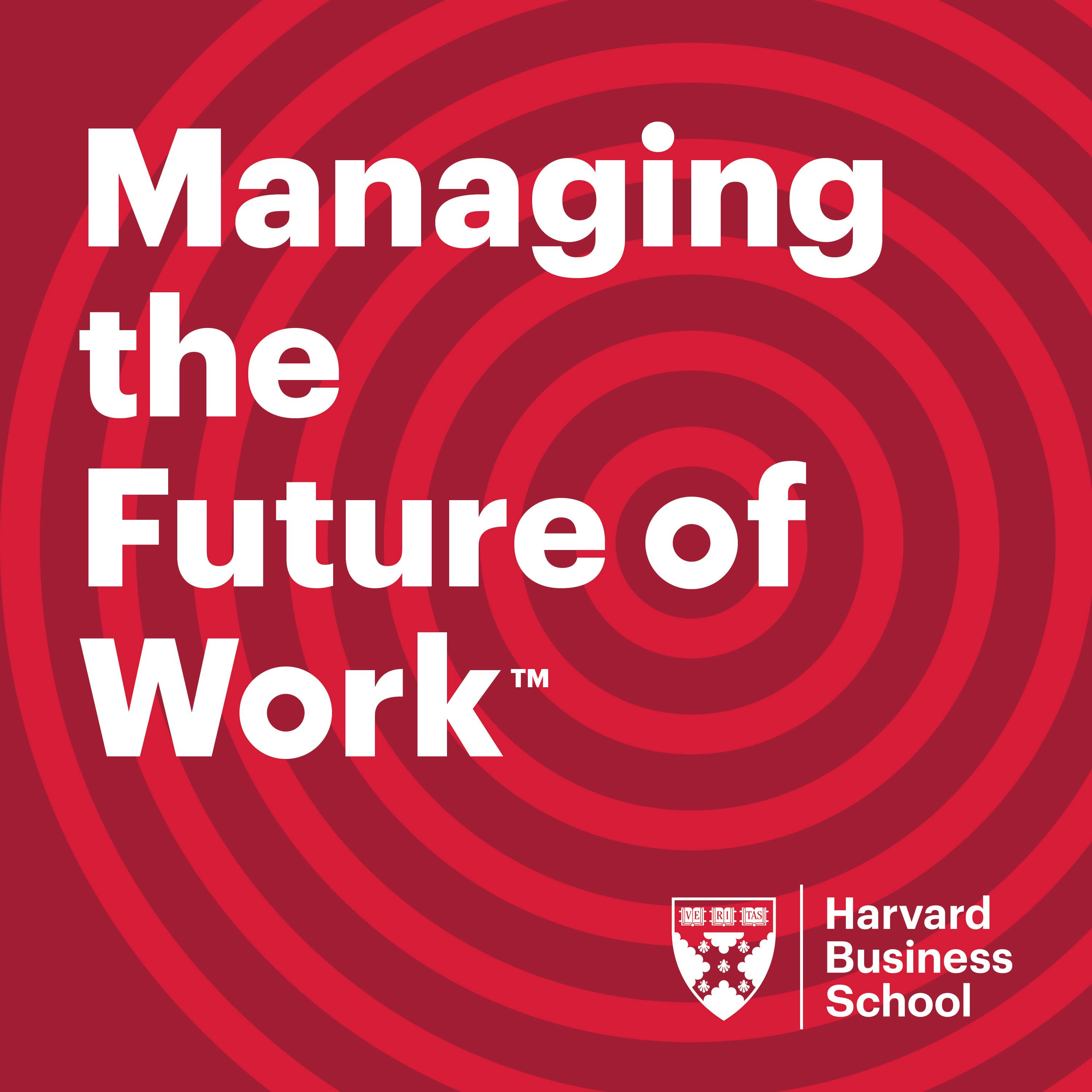

HBS Managing the Future of Work
Harvard Business School
Artificial intelligence. Robotics. The Gig Economy. Globalization. The world is changing at a dizzying pace in ways that will have a profound effect on the economy, jobs and the flow of talent. How will firms cope with the changes ahead and what steps do they need to take today? Each episode features faculty from the world’s leading business school interviewing CEOs, technologists and experts on the bleeding edge discussing how to survive and thrive by managing the future of work.
Episodes
Mentioned books

Jun 1, 2020 • 27min
Covid-19 Dispatch: Joe DeLoss
Social entrepreneur Joe DeLoss discusses how his company, Hot Chicken Takeover (HCT), has negotiated the coronavirus pandemic. As a fair-chance employer, HCT hires workers who have faced a variety of challenges. Joe says this is in fact a significant competitive advantage. He describes the HCT Covid-19 stability guide for employees and explains how the restaurant chain’s reopening strategy prioritizes the safety of both customers and employees.

May 28, 2020 • 29min
Covid-19 Dispatch: Dan O’Connor
Commerce expert Dan O’Connor rejoins the podcast for a special Dispatch episode. Dan draws on his experience advising leading retailers and his ongoing research on global digital platforms to offer a glimpse of a post-Covid retail landscape. He also counsels those small businesses able to weather the crisis to take the opportunity to refocus. Across categories, the “at-home,” budget- and safety-conscious, consumer is an essential constituency.

May 26, 2020 • 26min
Covid-19 Dispatch: Hayden Brown
Hayden Brown has been Upwork’s CEO since January 2020, just before the coronavirus pandemic shifted much of the workforce to working from home. Upwork is a leading platform connecting freelance workers to businesses who need help. Hayden shares with what changes she has seen since Covid-19 hit, what skills are in demand and how this new normal might change the nature of remote work. Often the capabilities that are not readily available in the local market are accessible on platforms like Upwork.

May 22, 2020 • 29min
How Catalant helps align workforce and work
Large firms aiming to innovate or achieve a degree of agility increasingly look for outside help. Catalant has placed itself at the crux of this dynamic by offering a project management software platform and staffing marketplace for harnessing the skills of internal and external personnel. Cofounders, co-CEOs, and HBS alums, Rob Biederman and Pat Petitti talk about the company’s evolution and how it’s providing clients regular insights into their most strategic work.

May 20, 2020 • 26min
Covid-19 Dispatch: People + Work Connect
Covid-19 has brought Great Depression-level unemployment to many economies and triggered imbalances of supply and demand as some businesses have needed to staff-up quickly. One private sector response, People + Work Connect, is a business-to-business personnel exchange platform active in more than 40 countries. The brainchild of corporate chief human resources officers (CHROs) at Accenture, Lincoln Financial, ServiceNow, and Verizon has signed up hundreds of businesses looking to place idled workers or fill open positions. Accenture’s Nicholas Whittall and Mary Kate Morley Ryan discuss the initiative.

May 18, 2020 • 29min
Covid-19 Dispatch: Craig Malloy
What happens when a video conferencing company has to rely on its own products for its day-to-day operations? The pandemic turned Austin, Texas-based Lifesize’s commute-to-work culture into a virtual organization overnight. As its customers’ videoconferencing volumes increased almost tenfold, the firm adjusted to remote work and completed a major merger. CEO Craig Malloy talks about the fast-forwarding of many enterprises’ long-range plans and the implications of the new normal.

May 14, 2020 • 28min
Covid-19 Dispatch: Barry Schuler
The pandemic has radically altered the economic landscape and vastly complicated the VC market. Money is in short supply and start-ups need to run leaner. Consolidation looms. DFJ Growth partner, Barry Schuler, discusses risk mitigation, mentoring entrepreneurs through the crisis, and taking the long view.

May 11, 2020 • 16min
Covid-19 Dispatch: Karen Mills
Return guest, Harvard Business School senior fellow Karen Mills, is uniquely qualified to assert that the Covid-19 pandemic poses a greater threat to US small businesses than the Great Recession of 2008-2009. She directed the Small Business Administration from 2009 to 2013 and has been advising Congress and fintech companies on how to help small businesses through the pandemic. She is the author of Fintech, Small Business & the American Dream.

May 6, 2020 • 20min
Covid-19 Dispatch: Taso Du Val
The pandemic has increased demand for online, remote freelance and contract work. Digital labor platform Toptal provides a market for highly skilled freelancers and contractors working in such fields as software engineering, artificial intelligence, design, and project management. Not surprisingly, the downturn has sent more workers to the platform. In some cases, employers have turned to the platform to find temporary work for their idled employees. CEO, Taso Du Val, joins the podcast. (Toptal’s remote work playbook: https://www.toptal.com/playbook)

May 4, 2020 • 25min
Covid-19 Dispatch: Sham Kakade
Contact tracing—mapping the spread of a virus by identifying individuals in the chain of transmission—is an essential tool in the fight to limit the damage of Covid-19. Early experience in South Korea, China, Singapore, Germany, and elsewhere has shown what works. Successful schemes save lives and mitigate economic losses. Smartphone apps have a role play, but as with e-commerce, security and privacy are concerns. Harvard’s Safra Center for Ethics recently published a paper outlining how contact tracing can be designed to protect users’ privacy. Coauthor Sham Kakade, a computer scientist at the University of Washington, explains.


